Getting to go to your top pick for university is a dream come true. And while many (if not most) of you probably expect your loved ones to support your ambitions, this doesn’t always happen the way you imagined. Unfortunately, some parents have such a hard time letting go of you that they might end up hurting you out of love.
Internet user u/carlinha1289 opened up to the TwoXChromosomes online community about some incredibly sensitive information she uncovered. She was stunned to learn that her mom may have sabotaged her university applications abroad in order to keep her closer to home. Keep scrolling for the full story, including an important update from the author herself.
Studying abroad is a dream for many young adults. However, some parents have an incredibly hard time letting go of their kids

Image credits: Curated Lifestyle / Unsplash (not the actual photo)
One woman opened up about how she found out that her overprotective mom subtly sabotaged her dreams of going to university in Europe
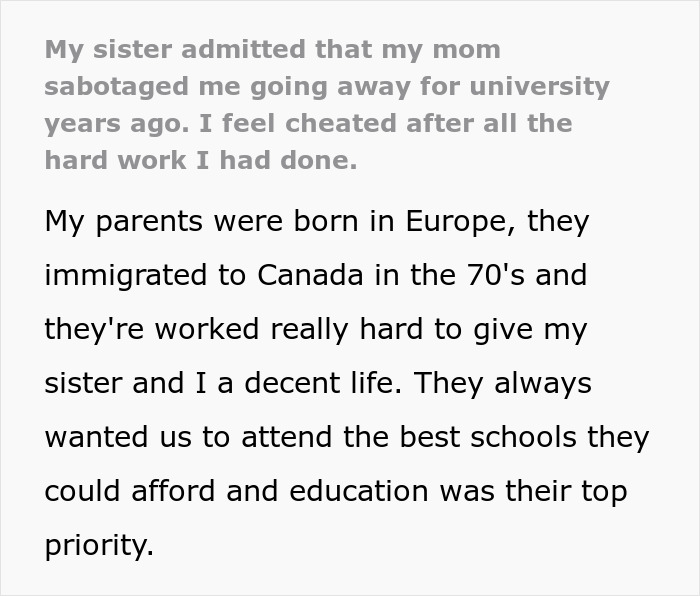
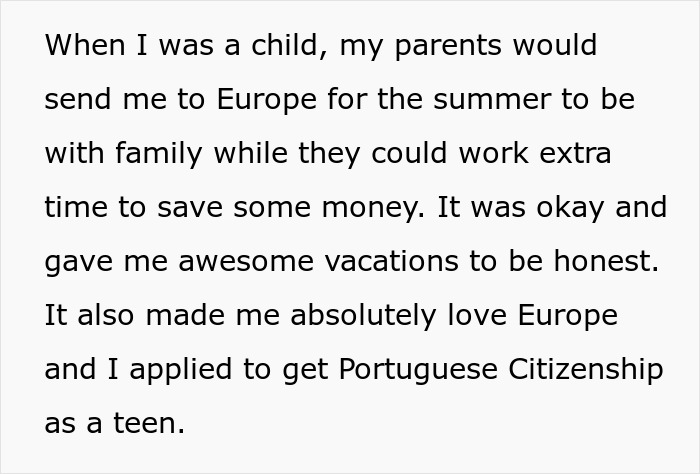
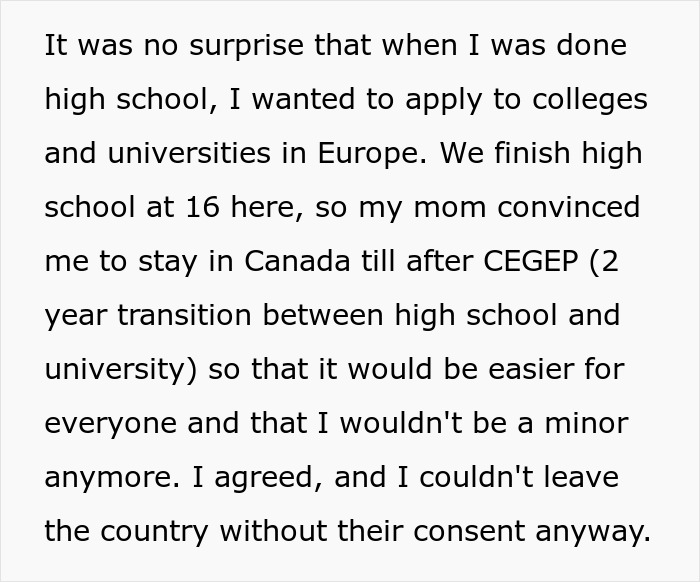

Image credits: Yaroslav Shuraev / Pexels (not the actual photo)

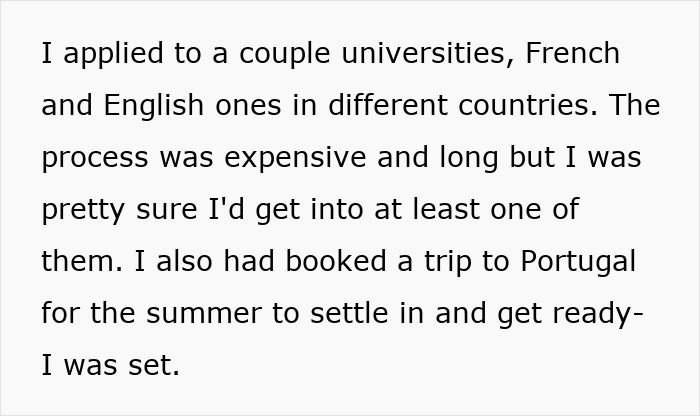
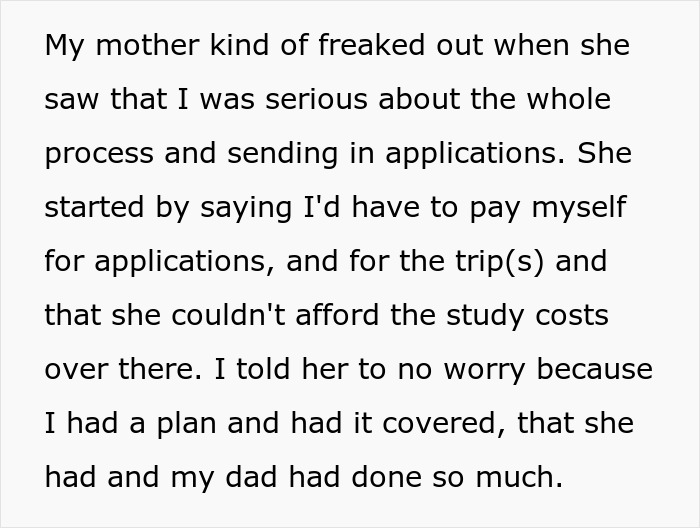

Image credits: Nataliya Vaitkevich / Pexels (not the actual photo)
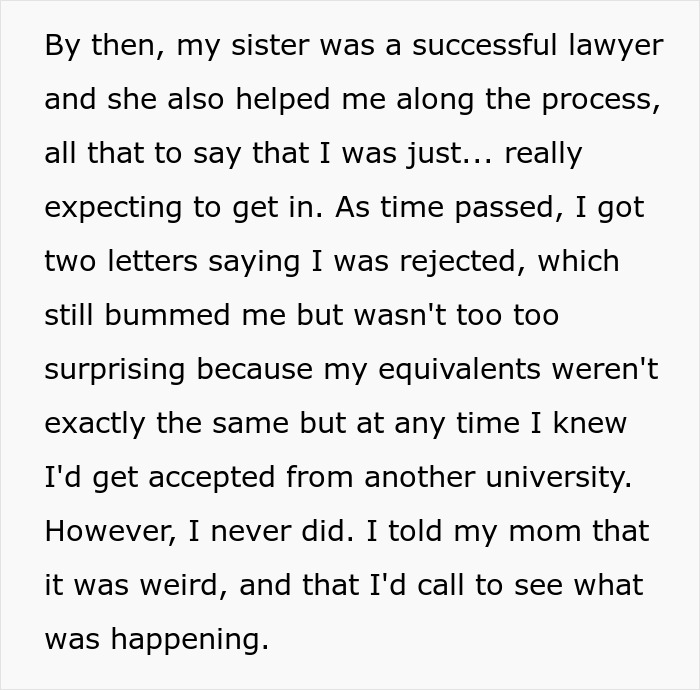
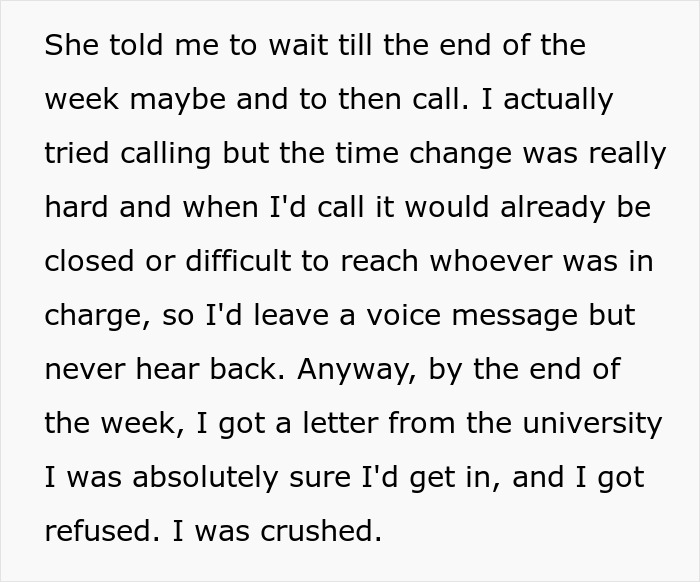


Image credits: Agung Pratama / Pexels (not the actual photo)

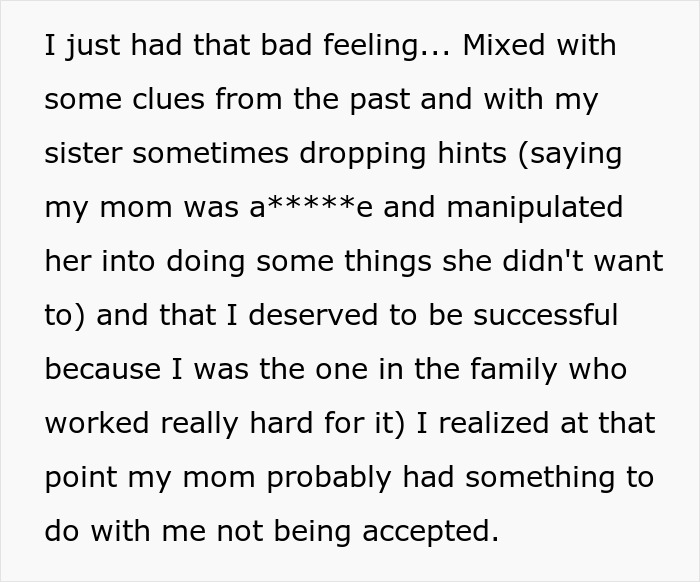
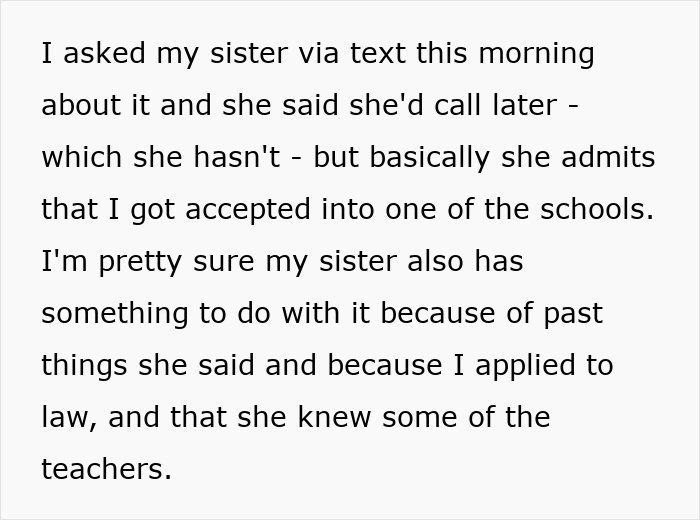
Here are the messages between the author and her sister about the shocking revelation about their mom
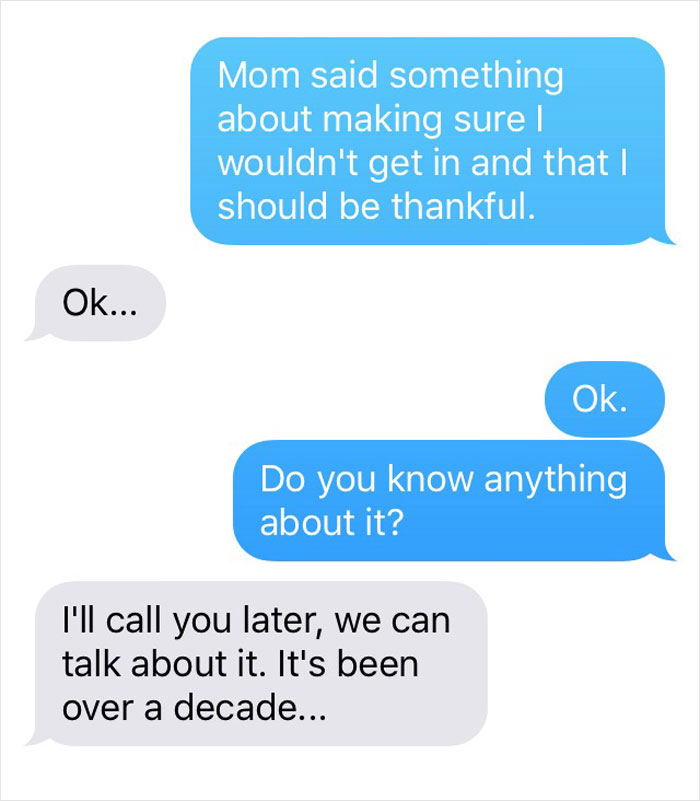
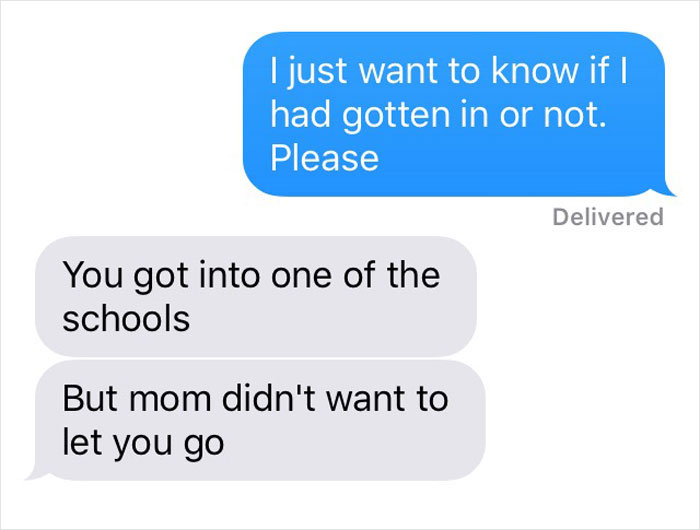
Image credits: carlinha1289

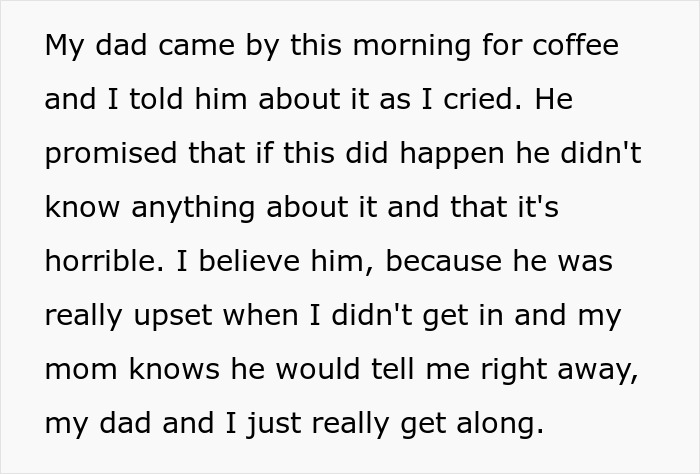
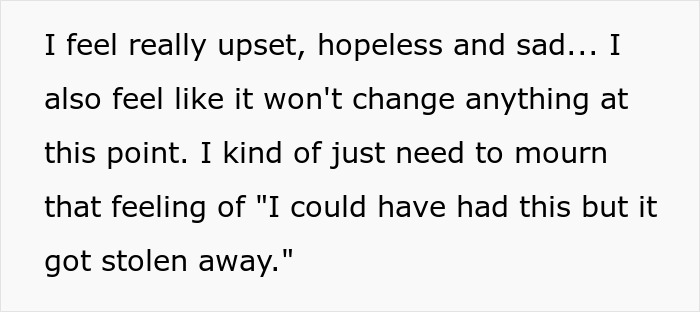

Image credits: Liza Summer / Pexels (not the actual photo)
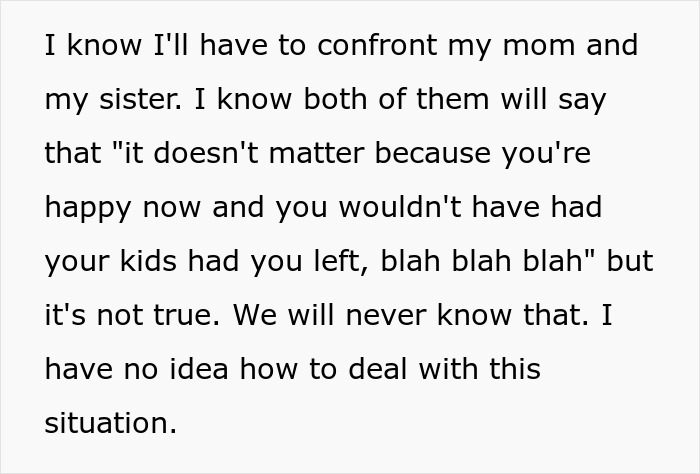
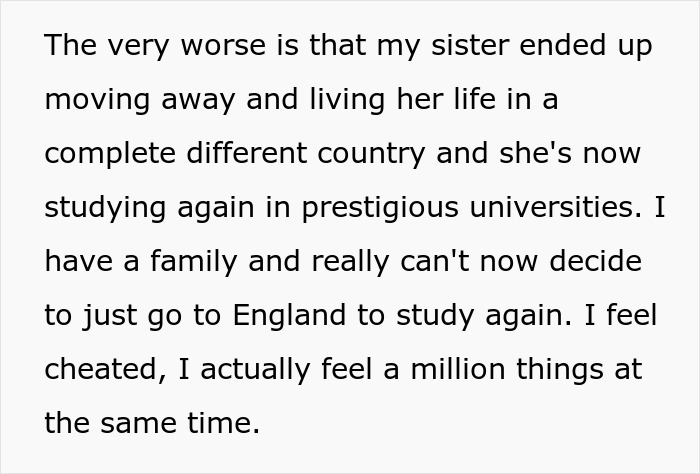

Image credits: carlinha1289

Image credits: Ketut Subiyanto / Pexels (not the actual photo)
The goal of every parent should be to raise confident, independent, skilled, and capable kids. Micromanagement, hovering, and helicopter parenting do the opposite
A parent’s love for their children can be a wonderful thing. But when taken too far, it can turn into suffocating pressure, micromanagement, decreased independence, and over-the-top influence in their lives.
That’s all to say that, sometimes, the things that family members do out of love aren’t always in your best interest. Even if the parental drive to protect is understandable, your loved ones should want you to thrive, learn new skills, and grow as an individual.
And that often means putting yourself in new, uncomfortable situations that force you to fail and adapt. But failure is a core part of life. That’s how you build confidence and develop the skills and independence you need to succeed in adult life.
Of course, all of this is easier said than done. It can be incredibly tough for parents to watch their kids grow up and move out, let alone move abroad for their studies.
As Forbes points out, no matter how prepared you think you are as a parent, the separation from your children as they head off to university will be hard.
“Sit down and have a conversation with your student in which you enthusiastically acknowledge that a big shift is underway. Indicate that you want to support both them and you in succeeding at it. The main aspects of the transition are greater responsibility and independence for the student and less information and onus on the part of the parent,” says Julie Lythcott-Haims, author of ‘How to Raise an Adult’ and ‘Your Turn: How to Be an Adult.’
According to her, you should ask your child about the things they want to learn from you so they can then handle them themselves. For instance, you could teach them the basics of making appointments, buying things at the store, refilling medications, filling out forms, organizing travel arrangements, tracking deadlines, doing chores at home, etc.
In short, focus on the essentials that every functioning grown-up needs to know. Your goal ought to be teaching your child how to do these things alongside them, rather than solving all of their problems for them immediately. In other words, you’re supportive, but not a micromanager.

Image credits: cottonbro studio / Pexels (not the actual photo)
Trust lies at the core of these questions. Your kids need to know that you have faith in them to (try to) do things on their own
Meanwhile, Fran’Cee Brown-McClure, Ph.D., the Vice President of Student Affairs at Jackson State University, told Forbes that parents can help their kids make the transition into university students early.
For instance, while they’re still in high school, you can teach them to embrace small amounts of freedom. This will help you gauge how they handle themselves in different situations. Whether that’s cooking at home or advocating for themselves in school.
“This will go a long way and provide you with an opportunity to process and discuss while things are happening. Parents trust your students. You have raised them for 17-18 years and you have given them good information and experiences. Trust them to get it right, to make mistakes, and to learn along the way. Then trust the institution that you’re sending them to, to support them in their collegiate experience,” Brown-McClure stresses.
According to psychotherapist Lynn Lyons, LICSW, parents ought to do more listening and less lecturing once their kids start college. “Once students head out, parents must make room for their kids to connect to their college life. I had one parent require a daily conversation with her daughter while away at school. This impaired the student from making a healthy movement toward independence,” she states.
“Trust that you’ve given your young adult the skills needed to handle this new phase. If you haven’t, it’s too late to start teaching now, so be supportive and get to work earlier with the younger siblings.”

Image credits: Federica Giacomazzi / Unsplash (not the actual photo)
Mistakes are a natural part of life and are unavoidable. Instead of trying to shield your children from all possible stress, teach them to tackle their challenges well
According to psychology professor Nancy Darling, Ph.D., from Oberlin College, the goal is to help students grow with support into developing adulting skills and learning confidence through mistakes.
“Toddlers fall when they learn to walk. Then they get back up again, try new strategies, build new muscles, and make more mistakes. If we never let go of their hands and let them fall, they never learn and never have that glorious excited joy of running into our arms,” Darling writes in a piece on Psychology Today about the dangers of parental micromanagement.
“Hovering over young adults making big decisions about courses, friends, and activities communicates something important: that they are not capable of doing this on their own. That we care, but that we don’t trust them. How can they have faith in themselves if we don’t have faith in them?” She states that students ought to live in the moment and learn their new environment instead of having to constantly think about their parents.
What are your thoughts, dear Pandas? How would you handle the revelation that someone you love actually sabotaged your academic dreams? Did your parents have a hard time letting you go to college? If so, how did you all handle the change? What advice would you give to anyone who’s a new student to help them thrive? What do you think parents can do to support their students? Let us know what you think in the comments below.
As the story started getting more and more attention, the author shared more context in the comments
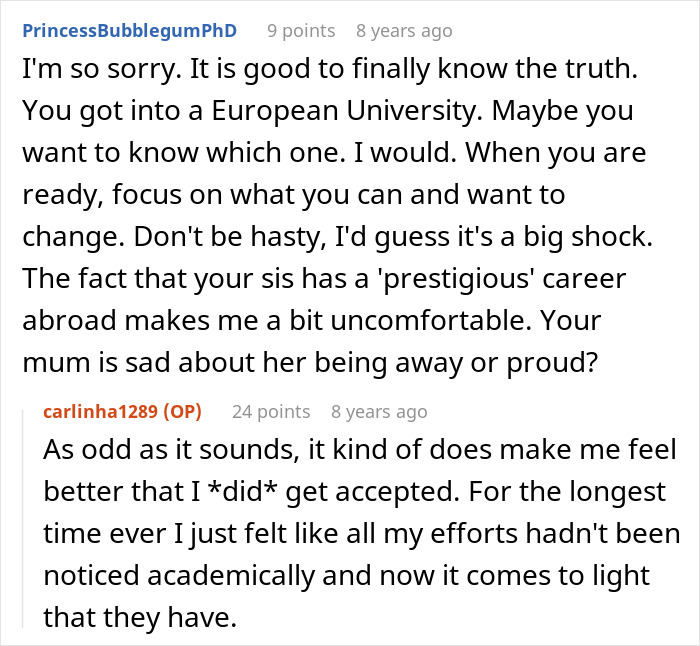

Here’s how the internet reacted as they read all about the woman’s family drama
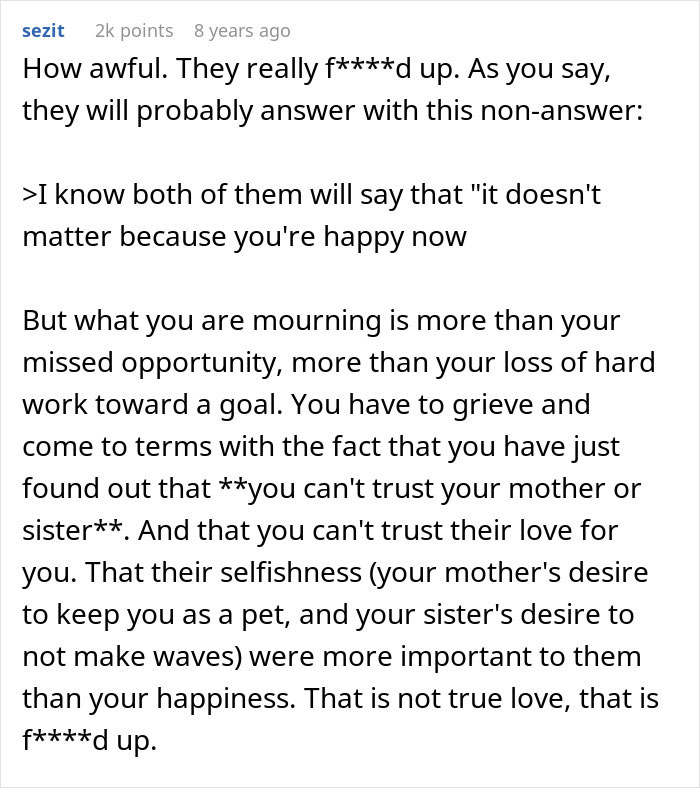

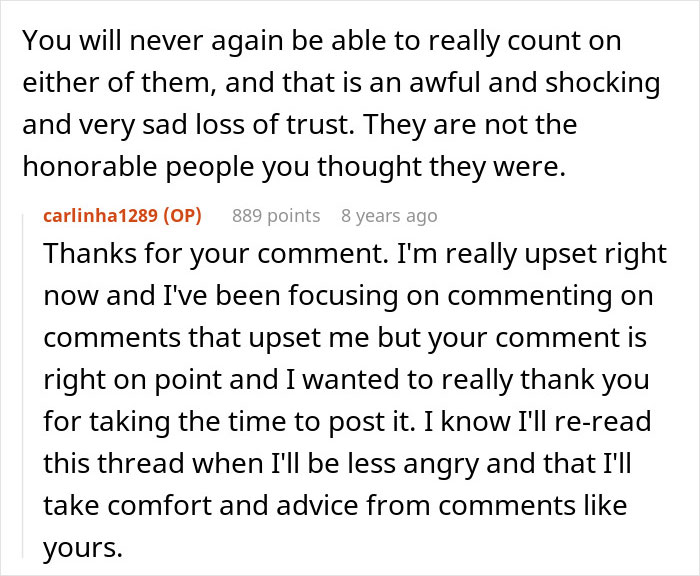

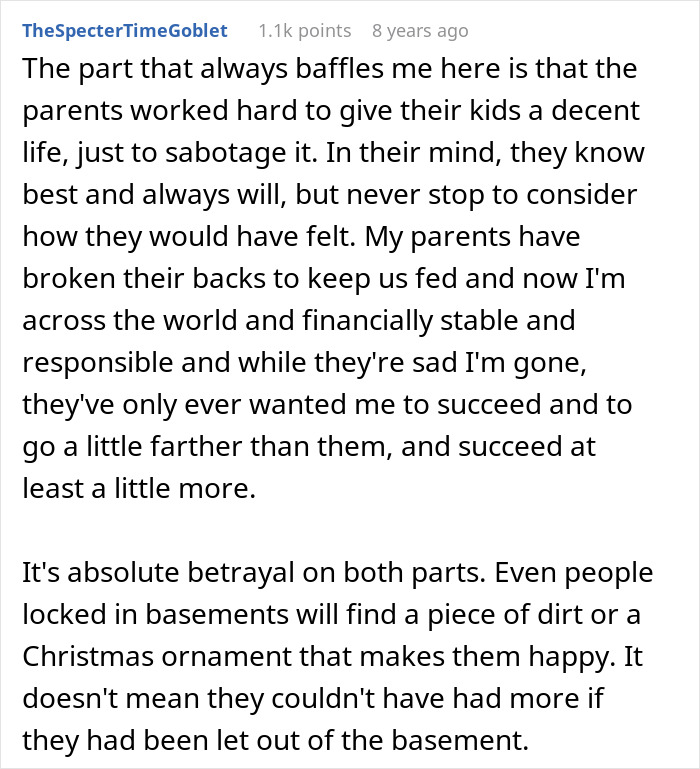

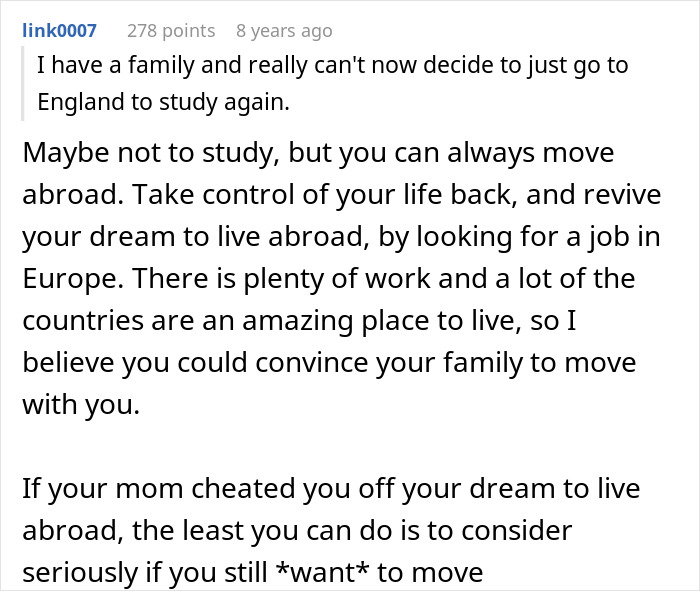

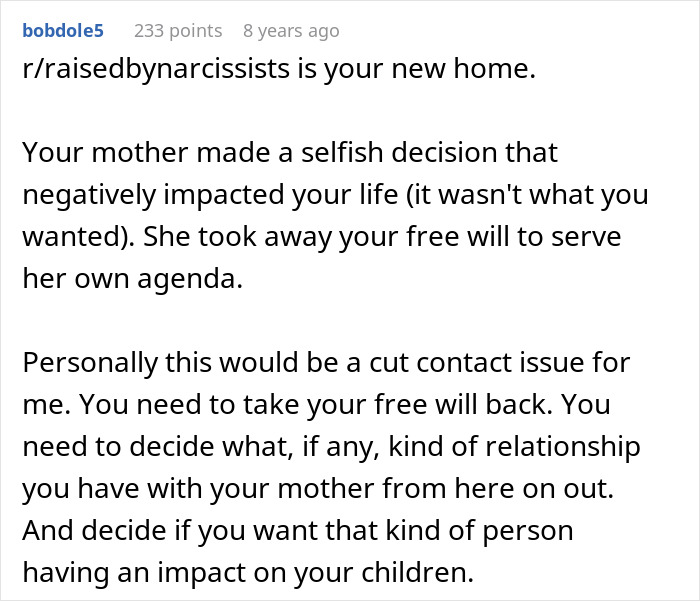
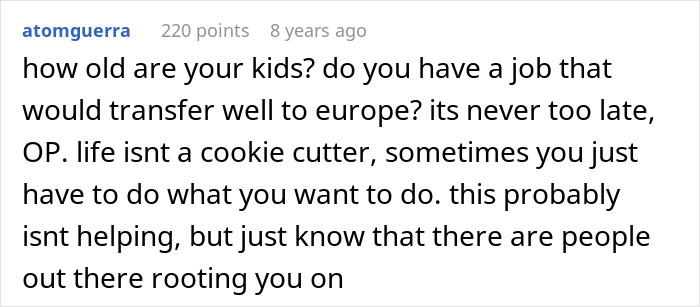
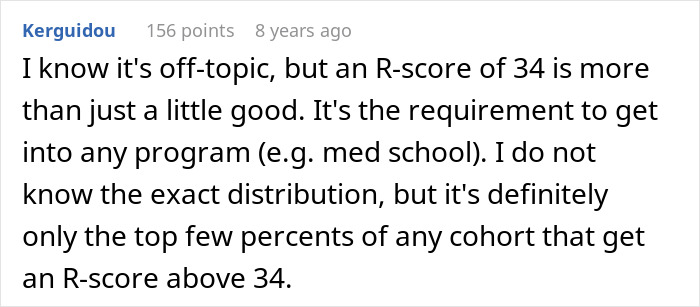


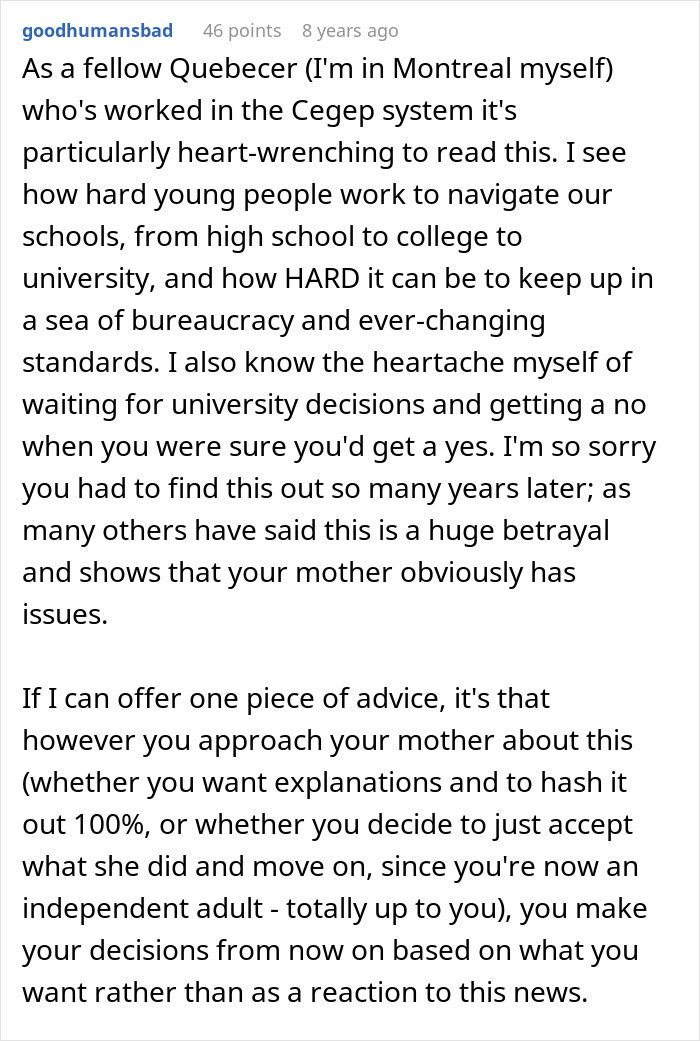

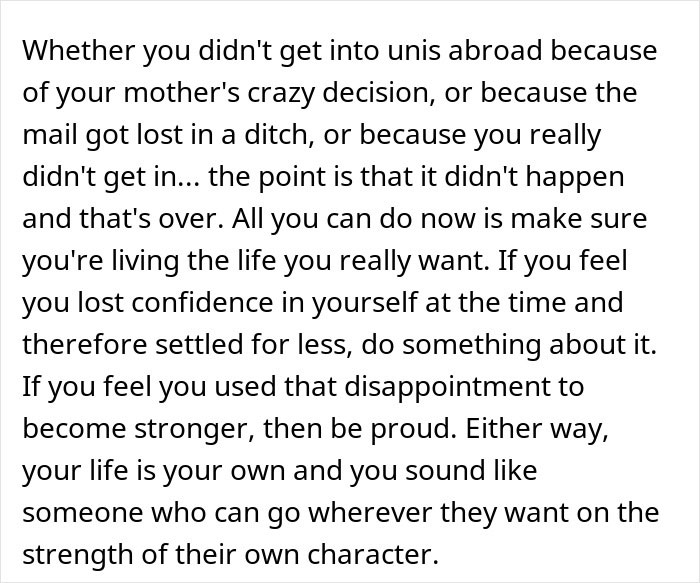

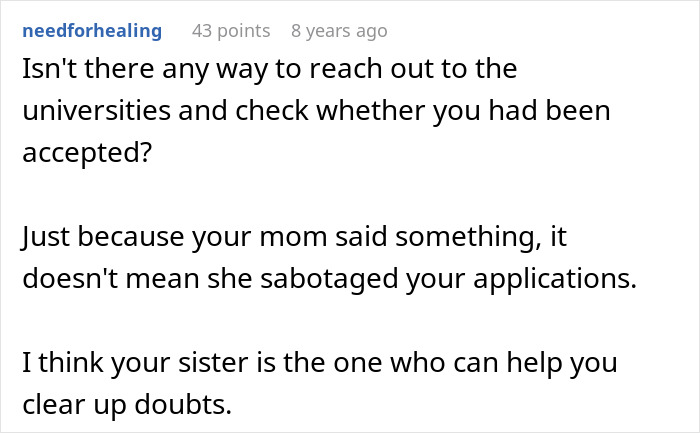

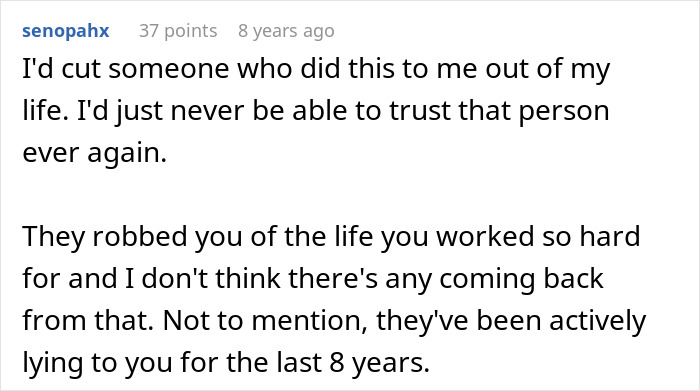

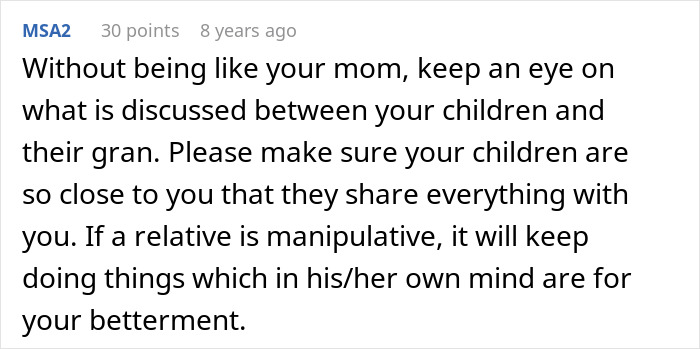
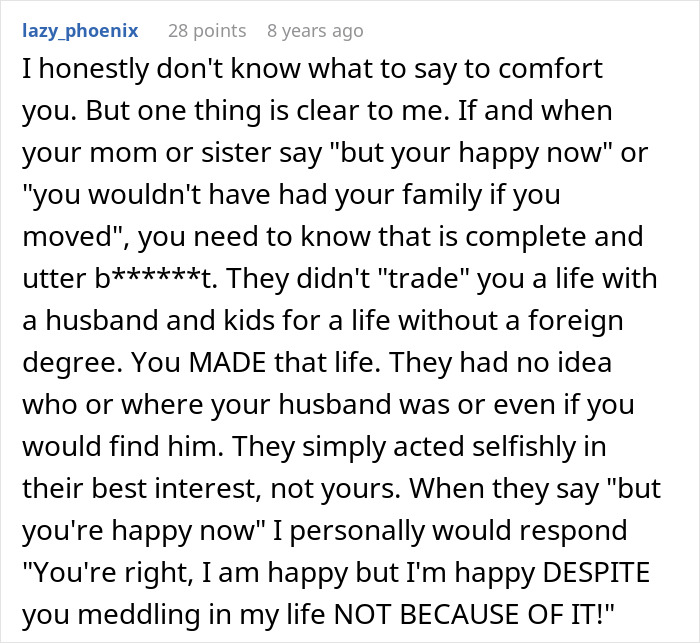
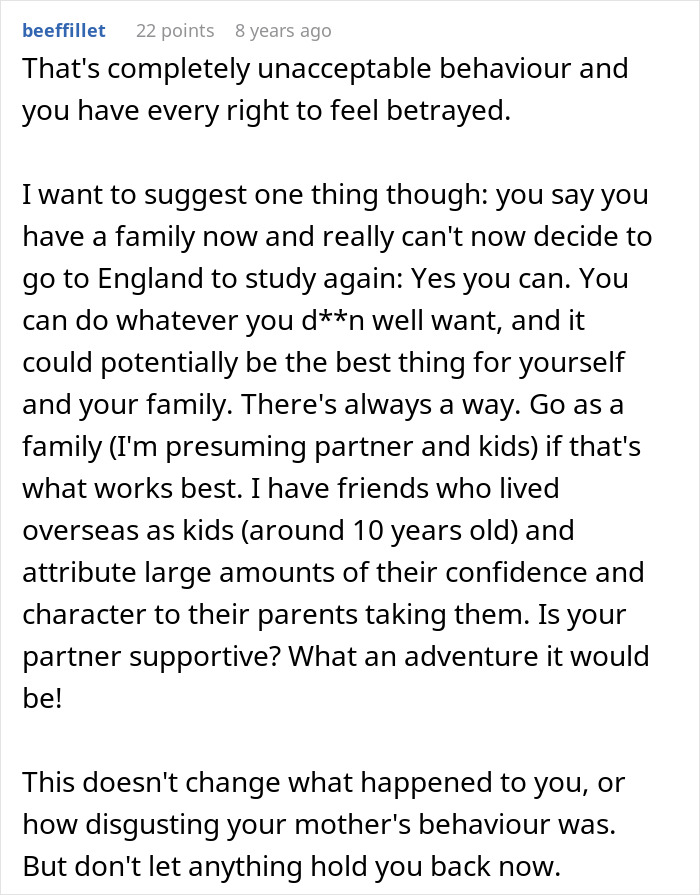
Some readers had similar experiences of their own that they wanted to share. Here are their life stories
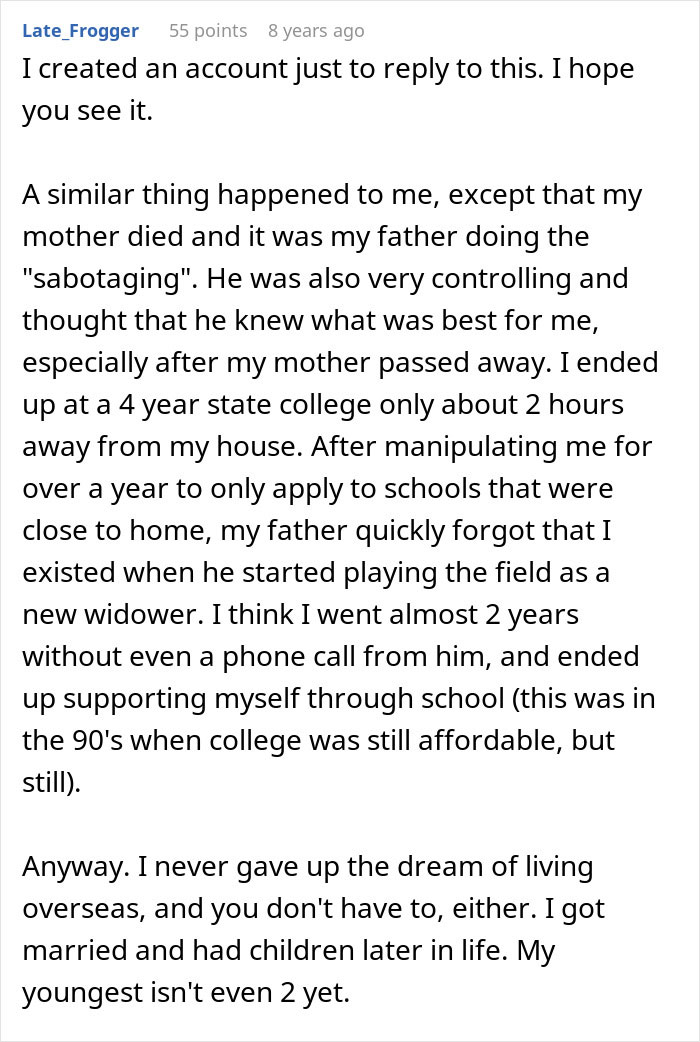
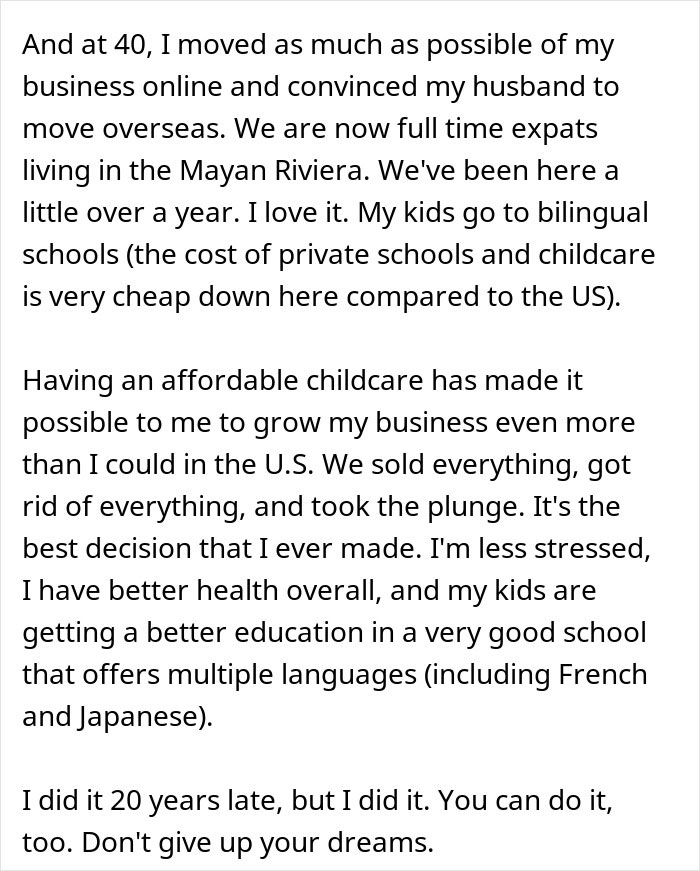
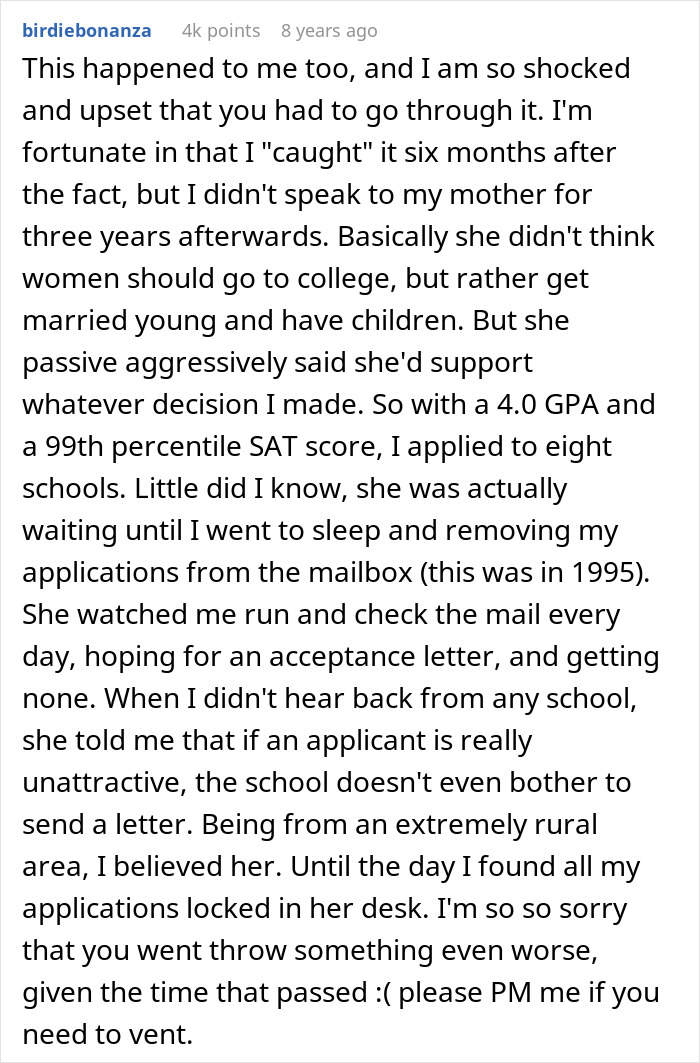

Later, the woman shared an update about how she began taking steps to confront her mother

Image credits: Gabriel Ponton / Unsplash (not the actual photo)






Image credits: RDNE Stock project / Pexels (not the actual photo)

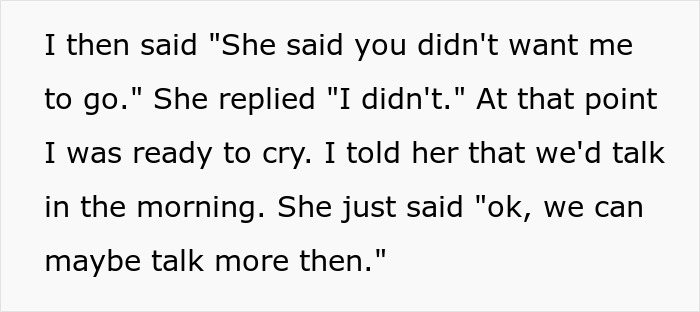






Image credits: Getty Images / Unsplash (not the actual photo)
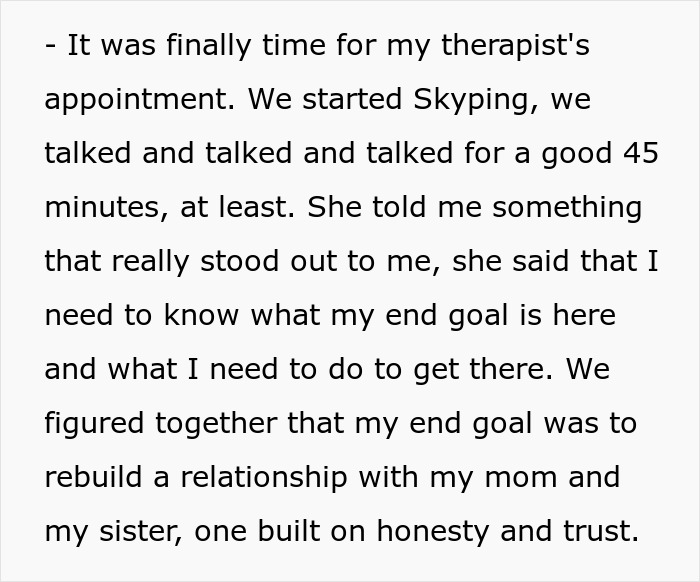


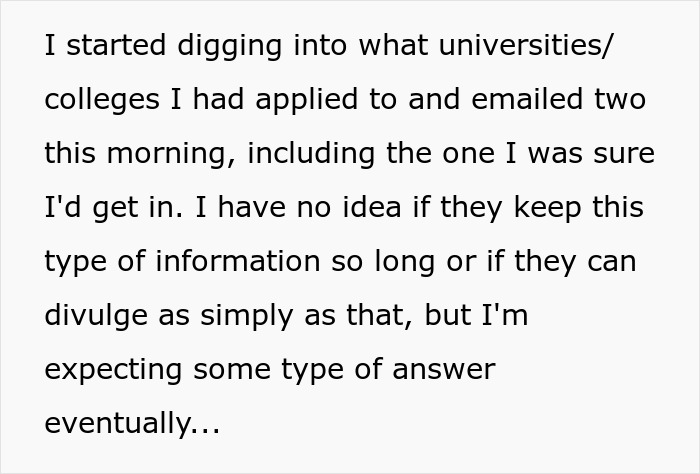
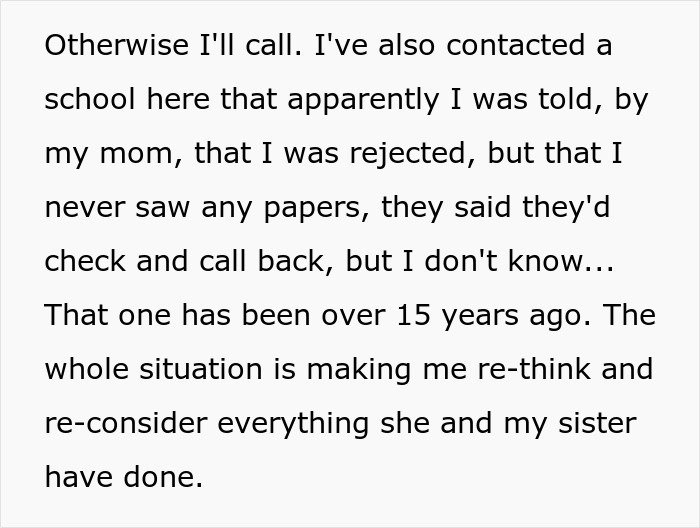


Image credits: carlinha1289
After reading the update, here’s how some netizens reacted to the new information
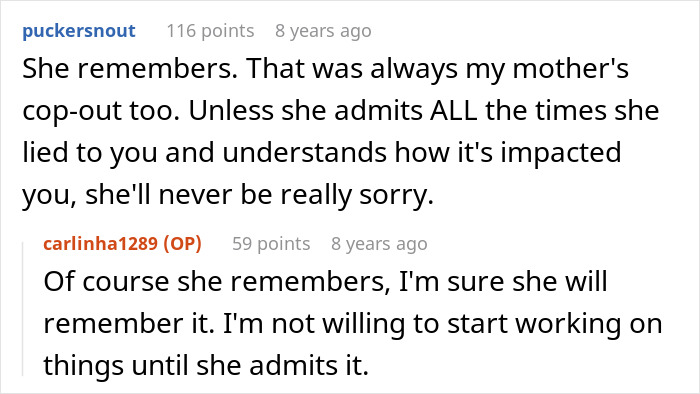

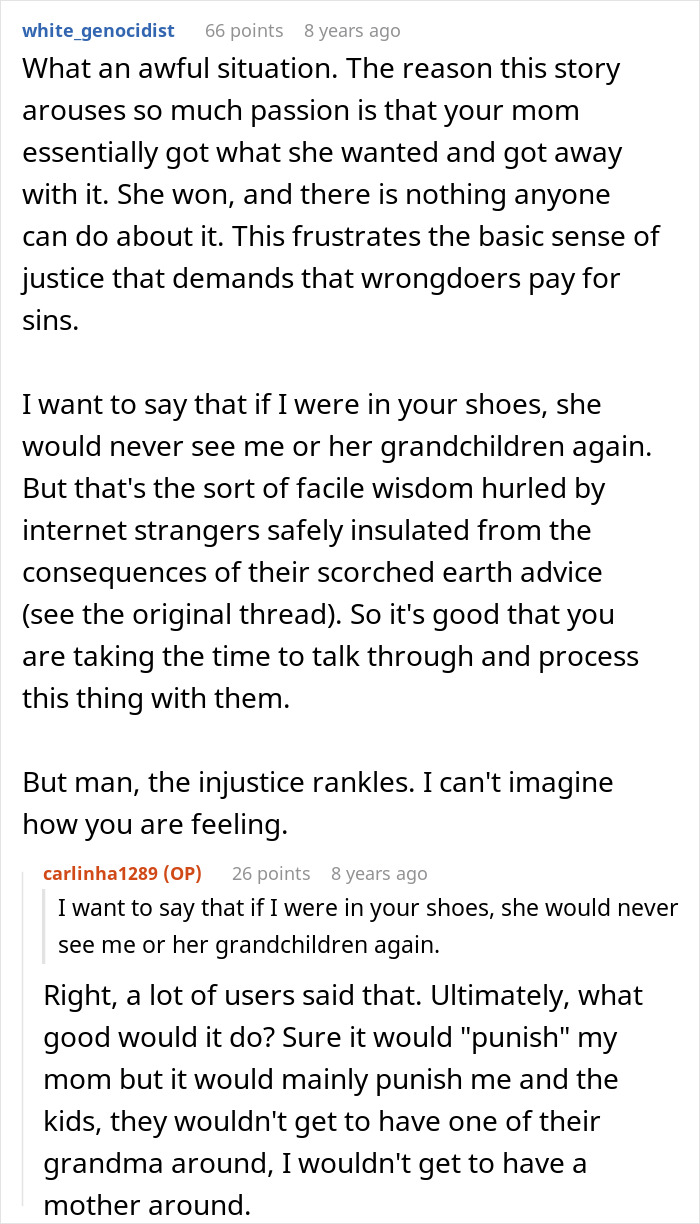

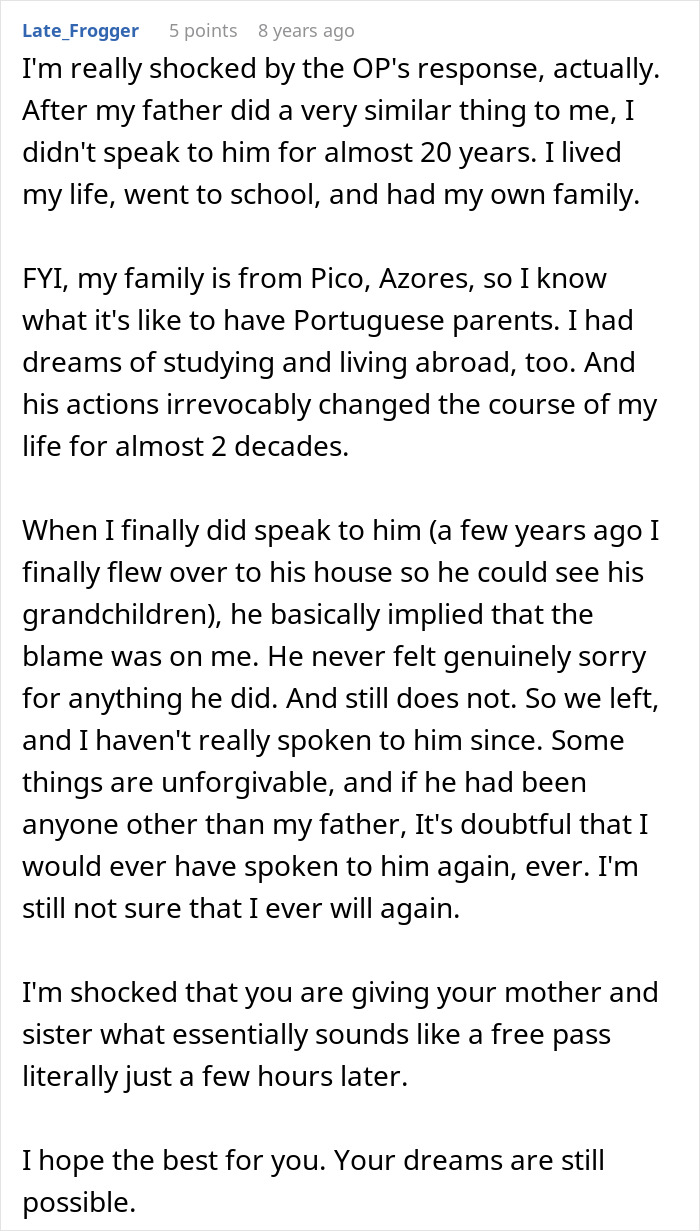
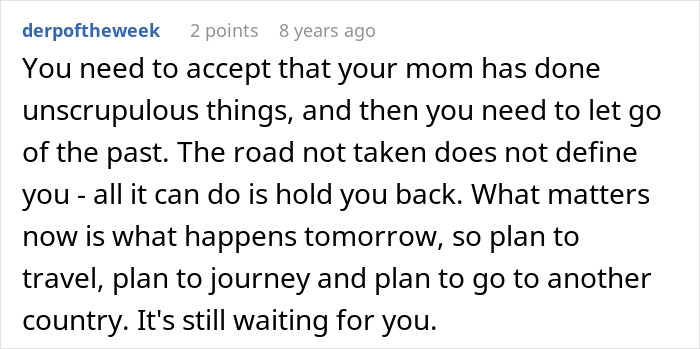

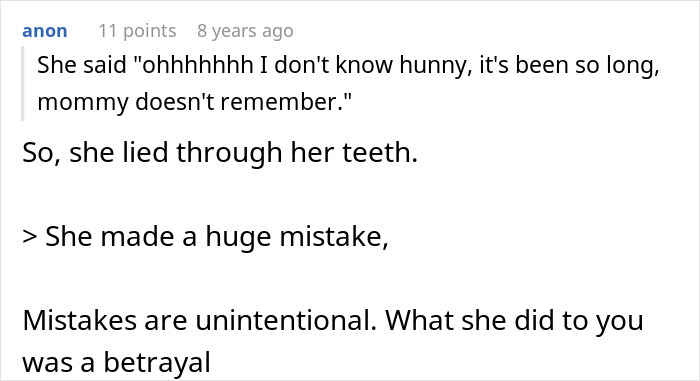
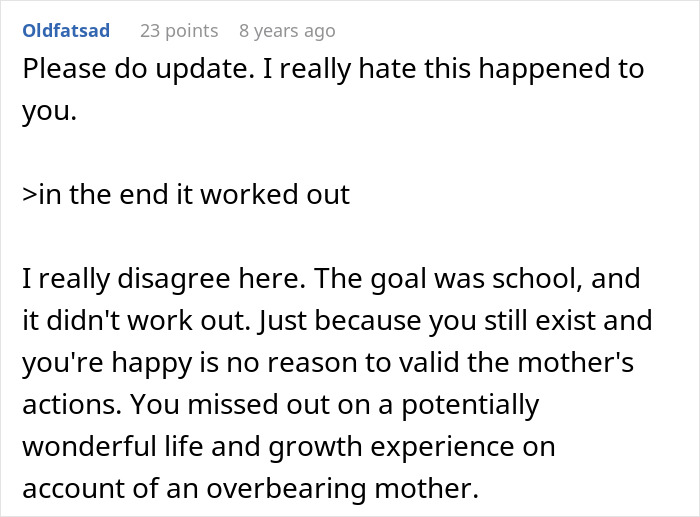
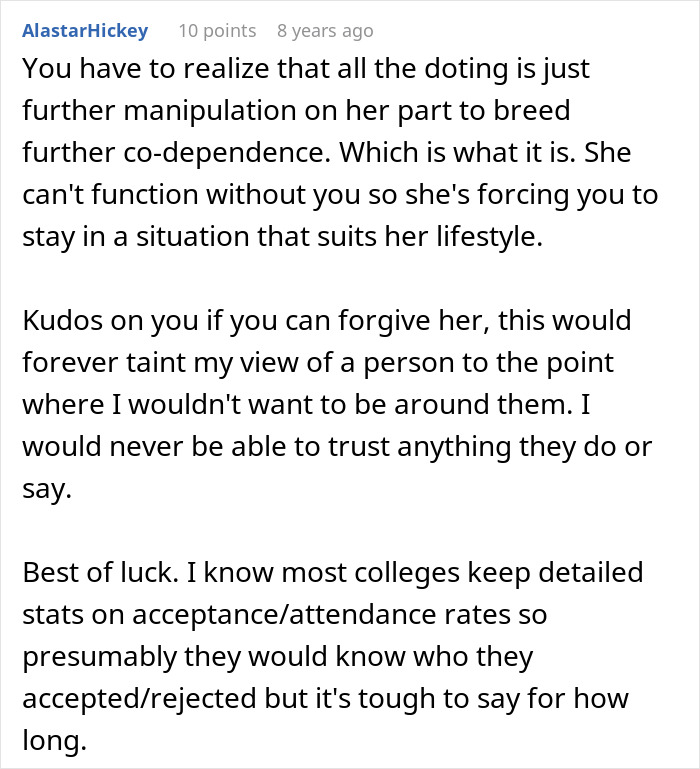
 Follow Us
Follow Us





